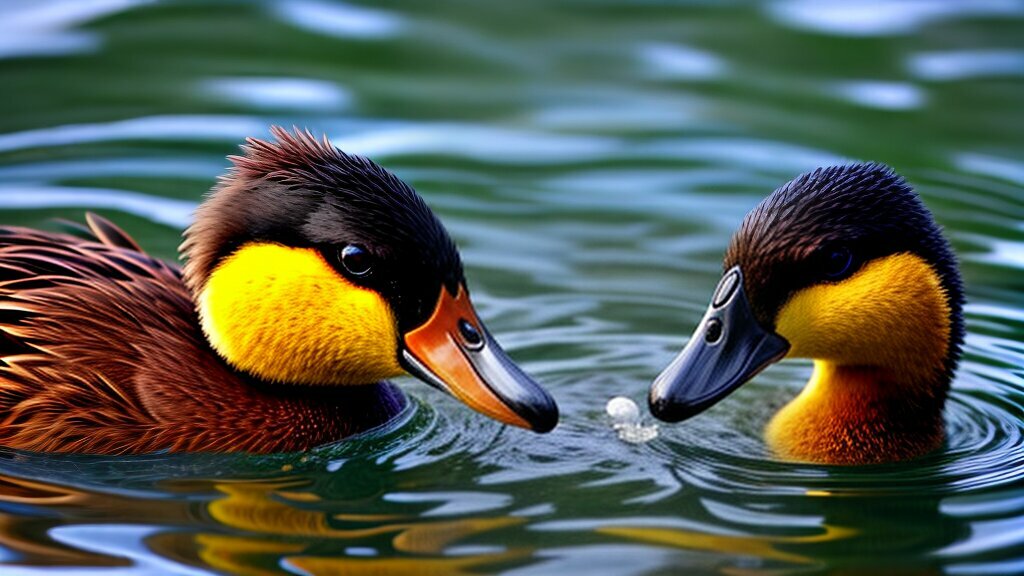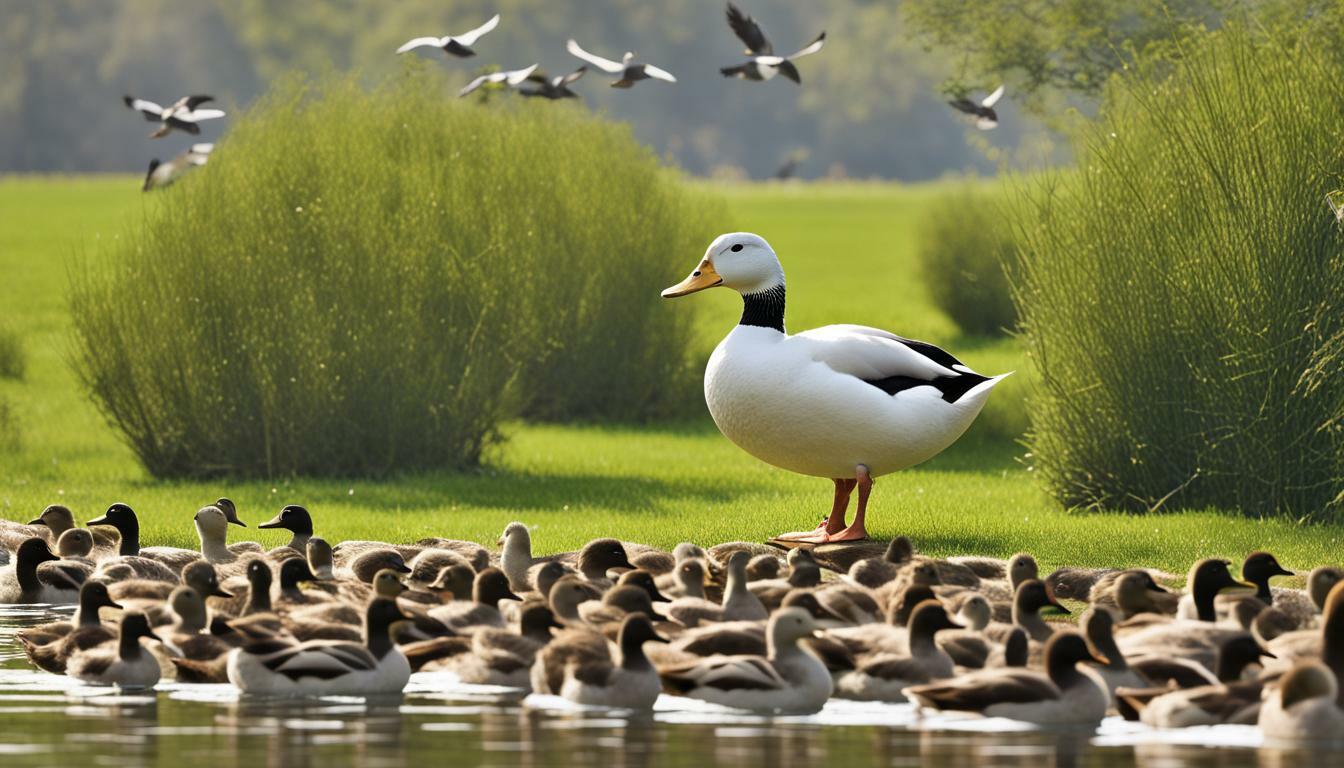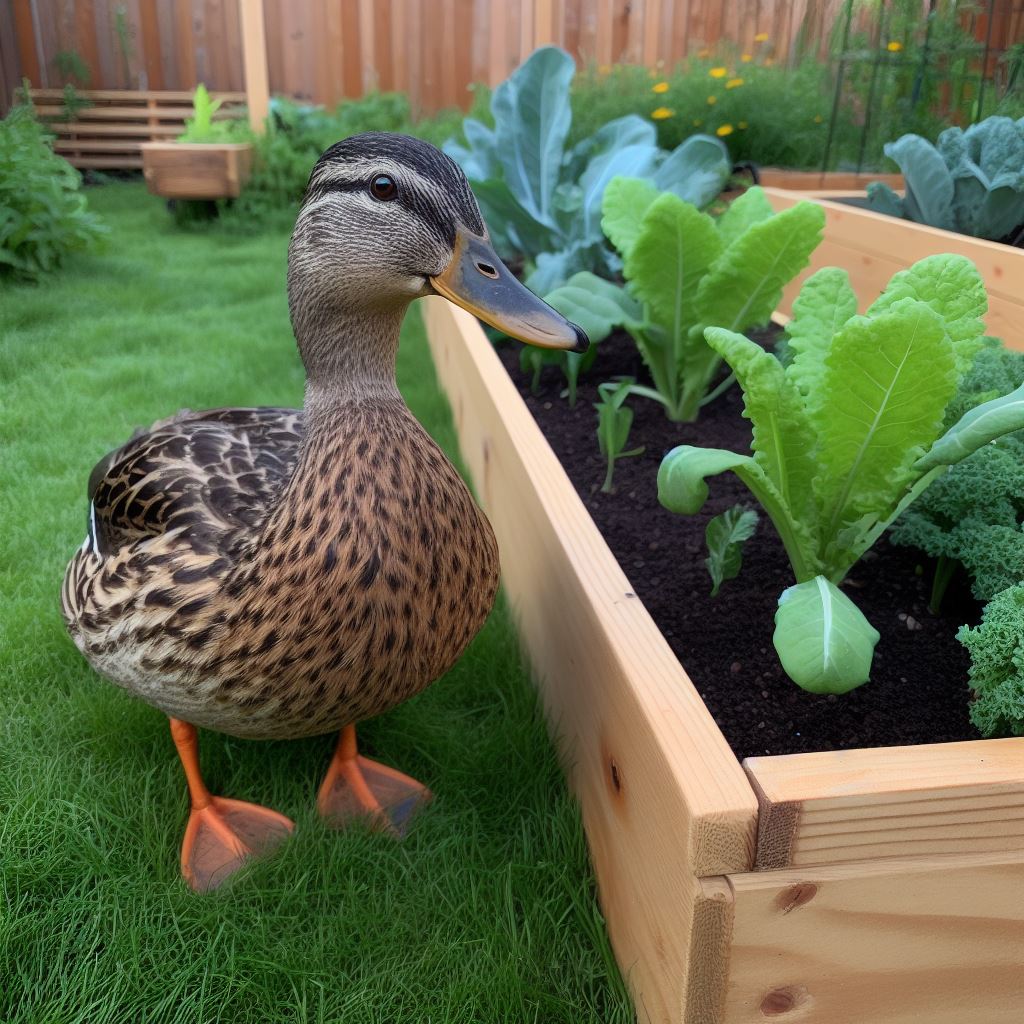Do Ducks Eat Mice?

Table of content:
Ducks eating mice may seem like an unusual notion, but it’s a fair question to ask. As opportunistic feeders, ducks will eat almost anything they can swallow. This article explores the intriguing idea of ducks preying on mice and other small rodents. We’ll cover what types of ducks consume mice, under what conditions they’ll feed on mice, and why mice occasionally end up as duck food. Read on to satisfy your curiosity about this peculiar duck behavior!
What Do Ducks Normally Eat?
Ducks utilize a diverse range of food sources based on habitat and availability. Their natural diet consists of:
- Seeds & Grains: Barley, oats, millet, wheat, rice, buckwheat, and aquatic plants.
- Vegetation: Duckweed, eelgrass, pond weeds, wild celery, and algae.
- Insects: Dragonflies, damselflies, water beetles, caddisflies, water boatmen, and diving beetles.
- Mollusks & Crustaceans: Snails, crayfish, small crabs, and freshwater shrimp.
- Fish: Minnows, mosquito fish, and carp fry.
- Amphibians: Tadpoles, frogs, salamanders, and newts.
- Small Birds: Chickens, songbird fledglings, and eggs.
Ducks employ various feeding strategies depending on the food source. Dabbling ducks like mallards tip upside down and reach into the water to consume plants and invertebrates. Diving ducks plunge underwater to catch fish and other aquatic prey.
Why Would Ducks Eat Mice?
Now we understand the typical diets of ducks and mice. But under what circumstances would a duck shift to preying on mice? Here are the main reasons ducks may eat mice:
Supplemental Protein
Ducks require protein and fat for breeding, egg-laying, and nursing ducklings. While their diet provides some protein from insects and fish, ducks may opportunistically hunt mice to supplement their protein intake. The extra nutrition helps ensure healthy offspring.
Limited Food Sources
During winter when ponds freeze over and insect activity declines, ducks have less access to their normal prey. If mice are an abundant food source nearby, hungry ducks may spot the furry rodents as an easy meal. This is especially true for domestic ducks living near agricultural fields or compost heaps where mice gather.
Nest Protection
Mother ducks are fiercely protective while incubating eggs and safeguarding ducklings. They will readily kill and eat any potential nest predator including mice. Consuming mice guards the nest from being raided for eggs and provides a nutritious snack for the mother.
Mutual Predation
Mice will occasionally eat duck eggs and ducklings if given the chance. So ducks may eat adult mice both as retaliation and deterrence. If ducks catch mice around their nest, they’ll dispatch with extreme prejudice to protect future offspring.
Do All Ducks Eat Mice?
The vast majority of ducks do not routinely eat mice. However, a few species are known to include mice as part of their broad diet:
- Muscovy Ducks: These large ducks often hunt mice, rats, small birds, and snakes. They’re great natural pest control for farms.
- Mallard Ducks: During nesting season, mallard hens may eat mice near their nests to prevent egg and duckling predation.
- Wood Ducks: Like mallards, wood duck mothers are protective of eggs and consume mice that get too close to the nesting cavity.
- Aflac Ducks: Just kidding! The quacking mascot is fictitious and wouldn’t eat mice unless they were breaded and fried southern style.
Most ducks only occasionally or opportunistically feed on mice to supplement their diet. Mice are likely a trace food source for many duck species. But a few individual ducks develop more of a taste for the tiny rodents.
How Do Ducks Catch and Eat Mice?
For ducks that do eat mice, how do they catch and consume the fast-moving, wary rodents? Ducks employ a couple different techniques to hunt mice:
Stalking and Ambush
Stealthy ducks will quietly approach mice by walking or swimming close to shore. When near enough, the duck swiftly snatches the mouse with its bill and swallows it whole. Muscovy ducks are masters of this surprise attack method.
Flushing Out of Burrows
Some ducks will stomp on the ground or dabble in the water near mouse burrows to flush the rodents out of hiding. When the mice emerge, the duck deftly catches them in its bill and gulps them down.
Gradual Intimidation
More apprehensive ducks cautiously intimidate mice to leave their burrow by slowly walking toward it while hissing threats. When the mouse tries to escape, the duck pounces on the opportunity for a quick and easy snack.
Scavenging
Ducks that discover dead mice may pick up the carcass and swallow it. Domestic ducks are especially likely to scavenge any small dead animals they find while foraging.
Due to their expandable esophagus, ducks swallow mice whole without needing to chew them. Ducks may shake the mouse vigorously or bash it against something to break bones and make swallowing easier. The duck’s strong digestive system takes care of the rest.
Do Ducks Rely on Mice as a Major Food Source?
While ducks occasionally eat mice, rodents do not constitute a significant portion of their diet. Ducks opportunistically feed on mice for supplemental nutrition or when other food sources are scarce.
Factors that limit ducks from heavily preying on mice include:
- Habitat: Most wild ducks reside near water while mice stick to land. This separation limits encounter rates.
- Duck Diet Breadth: With so many available food options, ducks don’t need to exclusively hunt mice.
- Mouse Population Resilience: High reproduction rates ensure mice remain abundant even with duck predation.
- Mouse Avoidance Adaptations: Mice have keen senses, swift movements, and hiding skills making them elusive prey.
- Energy Expenditure: The energy spent hunting mice outweighs the small amount of meat gained. Duck time is better spent foraging vegetation.
While an opportunistic duck may occasionally eat mice, rodents comprise a tiny fraction of any duck species’ total diet. Ducks are far better adapted for consuming aquatic plants, fish, and invertebrates.
Do Ducks Eat Dead Mice?
Most ducks prefer to eat live prey that’s moving. It triggers their hunting instinct and natural feeding behavior. However, ducks will consume freshly dead animals like mice when the opportunity arises.
Eating recently deceased mice provides ducks several advantages:
- Easy unmoving target to pick up and swallow.
- Pre-killed mouse poses no threat of injury to duck.
- Nutritional gain without energy expenditure of hunting.
- Allows duck to scout out new food resources.
- Tastes similar to live mouse.
Ducks detect dead mice using their excellent vision. A duck discovering a dead rodent floating in water or lying on the ground may tentatively grab it and gulp it down once sure it’s dead. This scavenging gives ducks a free Mouse McNugget without doing the work of catching it.
Summary of Ducks Eating Mice
To summarize, most ducks do occasionally eat mice as supplemental prey, but generally do not rely on rodents as a main food source. Mother ducks, larger duck species like Muscovy, and domestic ducks are most likely to purposefully hunt mice. Yet mice only comprise a tiny percentage of overall duck diets due to habitat separation and ducks favoring easier-to-catch foods. While ducks eating mice is biologically possible and sometimes occurs due to opportunism or necessity, it remains an unusual phenomenon. The consensus is clear – ducks do eat mice, but it’s far from an everyday dining choice!
Final Thoughts
This article explored the intriguing question of ducks eating mice. While an abnormal duck meal for sure, we learned how and why some ducks occasionally feast on rodents. Hopefully this satisfied your curiosity about the possibility of a duck/mouse food chain. Yet some mystery remains about exactly how many mice an average duck consumes annually. Further scientific study into duck diets could provide more insight into this unusual predator/prey relationship. For now we’ve established that yes, ducks definitely do eat mice…but it’s complicated! What other peculiar animal eating habits are you curious about? Let us know and perhaps we’ll explore the topic in a future article.
Welcome. I’m Adreena Shanum, the proud owner of this website, and I am incredibly passionate about animals, especially poultry. I founded adreenapets.com as a labor of love, stemming from my desire to share my knowledge and experiences with poultry enthusiasts worldwide.




